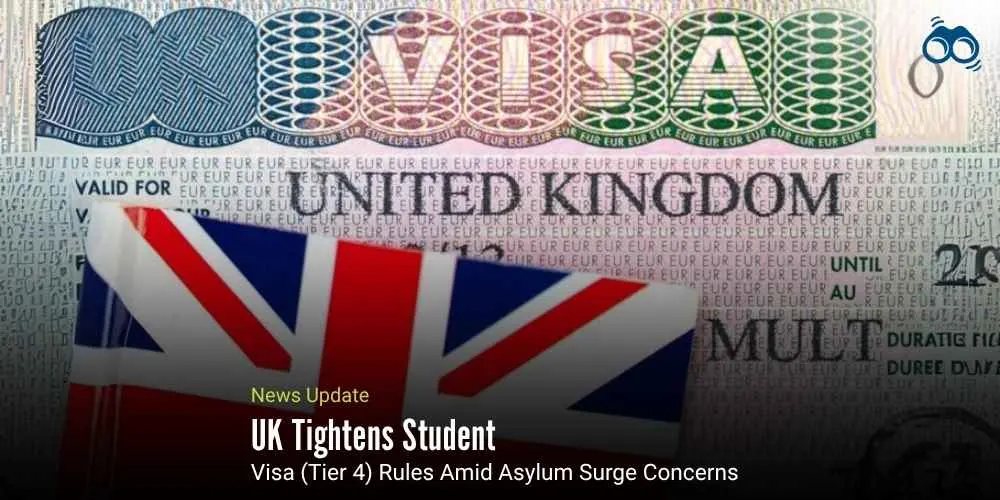Visa Integrity vs. Global Access: UK Reconsiders International Student Framework
Student Visas Under Scrutiny as UK Links Asylum Surge to Academic Entry Route
In response to mounting concerns over immigration control, the UK Government is reportedly preparing to introduce new regulations aimed at curbing the misuse of student visas by foreign nationals. As reported by The Times, the proposed measures, expected to be announced next month, follow the publication of Home Office data in March, which revealed that approximately 16,000 individuals who applied for asylum in 2024 had initially entered the UK on student visas.
These forthcoming changes are expected to form part of a broader strategy to tighten visa pathways and reinforce the integrity of the UK’s international education system. Policymakers have expressed concern that the student visa route is being exploited for non-academic migration, prompting calls for stricter oversight, enhanced eligibility checks, and greater institutional accountability.
Under the proposed framework, universities may face penalties if they fail to meet specific benchmarks for international student enrolment. These include ensuring that at least 95% of sponsored students commence their courses and a minimum of 90% complete them. Institutions may also be penalised if more than 5% of their visa applications are rejected. Those falling short could face limits on the number of students they are permitted to sponsor, and would be required to demonstrate improvement. In cases of persistent underperformance, universities may risk losing their sponsorship privileges entirely.
According to The Times, during the 2023–24 academic year, UK higher education institutions hosted 732,285 international students, whose tuition fees accounted for nearly 25% of total university income. Of this cohort, around 16,000 individuals applied for asylum, representing approximately 2% of the total. In earlier coverage by The Guardian, Home Secretary Yvette Cooper reportedly suggested that the data reflected a pattern of misuse, with some applicants allegedly submitting false claims of financial self-sufficiency during their visa applications, only to seek asylum after their leave to remain expired.
Furthermore, The Times reported that new country-specific measures would be introduced to target nationalities identified by the Home Office as disproportionately represented in visa overstays and asylum claims. Nationals from Pakistan, Nigeria, and Sri Lanka were reportedly highlighted as exhibiting this pattern. As a result, applicants from these countries are expected to undergo enhanced scrutiny, including detailed checks of financial records and social media activity, to assess whether their primary intention is genuine study or eventual asylum. The proposed reforms reflect a tightening of immigration controls, with implications for universities, students, and the future of the UK’s international education landscape.
Editor’s Note:
The UK Government’s planned tightening of student visa rules, as reported by The Times, marks a clear shift in immigration policy. The goal is to protect the integrity of the international education system and address real concerns about visa misuse. Data from the Home Office shows that about 16,000 people who sought asylum in 2024 had originally arrived in the UK on student visas. This raises serious questions about how well the current system is working and whether universities are being held accountable. The Government's proposed rules to prevent abuse, which include strict performance targets for universities (e.g., student completion rates, visa rejections), could unfairly penalise institutions struggling to recruit international students. Failure to meet these targets might result in losing the right to sponsor international students, even if universities are otherwise compliant. Applying extra checks like bank statements and social media to applicants from specific countries raises concerns about fairness and discrimination, potentially harming the UK's global image. The Government must balance immigration control with higher education support.
Skoobuzz emphasises that rather than penalising international students, who contribute academically and economically, it would be better to collaborate with universities to strengthen the system, enhance transparency, and provide increased support.














0 Comments (Please Login To Continue)